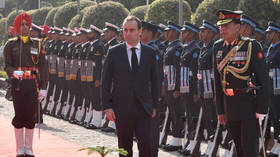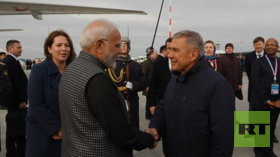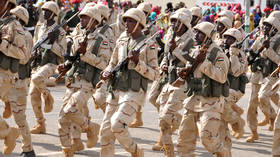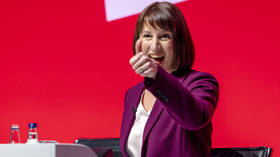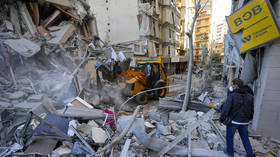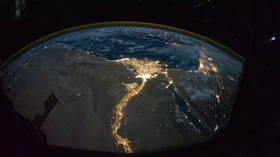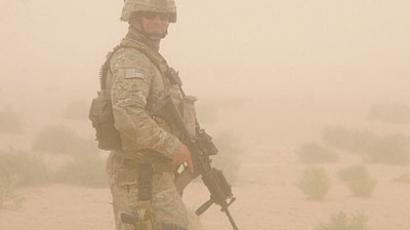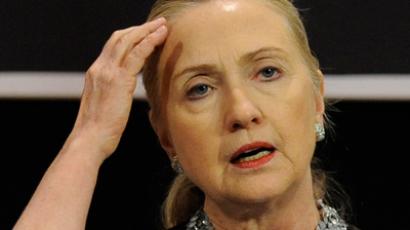Moscow looking for NATO cooperation, missile defense guarantees
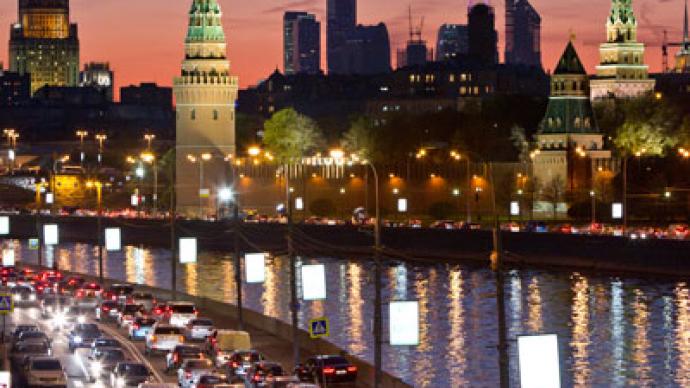
Russia, in its new foreign policy concept, shows the country is ready for equal cooperation with its Western partners, but wants security guarantees on the US missile defense system in Europe.
Although Russia’s new foreign policy concept, approved by President Putin on February 12, is less severe than some experts were anticipating, it nevertheless sets down definite parameters as to how Russia will build its relations with outside forces.For example, concerning relations with NATO, which many Russians view as a post-Soviet dinosaur that should have been consigned to the trash heap of history together with the Warsaw Pact, Moscow will work with the Western military bloc according to the dictates of international law."Russia will build relations with NATO consistent with the degree of the alliance's readiness for equal partnership, strict observance of principles and norms of international law,” the concept, which was published on the Russian Foreign Ministry’s website on Monday, says.The document reminds Russia’s Western partners of the obligation undertaken at the Russia-NATO Council “not to provide one's security at the expense of the security of others.” These steps will go far towards creating peace, security and stability in the Euro-Atlantic region based on principles of mutual trust, transparency and predictability, the document advises.Russia’s new foreign policy concept calls for the “strategic unification of goals” with all Euro-Atlantic states, including NATO members, in order to better ally themselves against common security threats, including “international terrorism, proliferation of weapons of mass destruction, sea piracy, drug trafficking, and natural and man-made calamities.”At the same time, Russia wants legal guarantees on the US missile defense system, which represents the single biggest obstacle to fully mature relations between the two former Cold War enemies.Moscow is looking for assurances that the US global missile defense network is not aimed at Russian nuclear deterrence forces, which would certainly throw a wrench into the fragile strategic balance, while possibly provoking another arms race. Prompted by what Moscow views as increasingly belligerent behavior by Washington in the domestic affairs of sovereign nations – most notably in Iraq, Libya, and to a lesser degree, in Syria – Russia expects the United States to be “strictly guided by international legal norms,” primarily the UN Charter and the principle of non-interference in domestic affairs of other states, when conducting itself in international affairs.The concept emphasized Russia’s willingness to continue “constructive cooperation” with Washington in various spheres, notably in the reduction of nuclear weapons, which Moscow and Washington agreed to in the New START treaty that entered into force on 5 February 2011. "Russia unwaveringly supports constructive cooperation with the United States in arms control, including due account of the unbreakable link between strategic, offensive and defensive means and the imperatively multilateral nature of the nuclear disarmament process," the concept said.The new concept emphasizes that “further reduction of strategic offensive armaments can be negotiated only with the consideration of every factor influencing the global strategic stability." A Newer World Order?Russia's new foreign policy concept strives to “create a stable and sustainable system of international relations based on international law and…the principles of equality, mutual respect and non-interference in the internal affairs of states.”Such a system is intended to provide “reliable and equal security for every member of the global community in the political, military, economic, information, humanitarian and other fields.”Russia’s foreign policy approach, some experts believe, is at variance with Washington which, since the collapse of the balancing role that the Soviet Union provided to international relations, has been increasingly willing to resort to unilateral actions on the global stage. Moscow has warned of the dangers of such an approach, saying that the United Nations must remain the ultimate arbiter of international issues.“The center of international relations and coordinate policies in the 21st century must be the UN, which…has a unique legitimacy,” the concept underlines.Russia supports efforts to strengthen its central and coordinating role. This implies the strengthening of the international body in its capacity for “adapting the UN to new world realities while preserving its interstate nature,” as well as “increasing the efficiency of the United Nations Security Council…for maintaining international peace and security.”According to the new foreign policy concept, Russia attaches great importance to the sustainable handling of global development, which requires the collective leadership of the leading countries in the world.To this end, Russia will continue to participate in international formats, such as the G20, BRICS (Brazil, Russia, India, China and South Africa), the G8, the SCO (Shanghai Cooperation Organization), RIC (Russia, India and China) as well as with other institutions and meeting platforms.Meanwhile, the document provided guidelines for how Russia will respond to outside efforts to impose sanctions on Russian citizens, while at the same time calling for intensified economic relations with the US."Russia will actively oppose US unilateral extraterritorial sanctions against Russian individuals and legal entities and initiate further liberalization of the bilateral visa regime."Moscow "bears in mind in building its relations with the United States the substantial potential for mutually beneficial trade, investment, scientific, technological and other cooperation and the crucial responsibility of both nations for global strategic stability and international security," the concept said. The document defines as a long-term priority of the Russian foreign policy as "the laying of a solid economic foundation for the dialogue with the United States, the strengthening of relations in all spheres, the quality improvement of equal and non-discriminative trade and economic cooperation on permanent terms.”Russia hopes that by following such guidelines, the two countries may nurture a “predictability of bilateral relations and strengthen interaction on the principles of equality, non-interference in domestic affairs and respect for mutual interests."Other frontsConcerning the ongoing crisis in Afghanistan and the upcoming coalition pullout, the new concept warns that the transition is “fraught with serious threats to the security of Russia and CIS member countries."Jointly with Afghanistan, other concerned states, the UN, the CIS, the CSTO, the SCO and other multilateral entities and within Russia-NATO projects, Russia will be working on a "permanent and fair political settlement of problems in that country," the document states.Comprehensive measures in the reduction of the terrorist threat coming from Afghanistan and the elimination of drug production and trafficking are an inseparable part of these efforts, it continued.Russia supports a further increase in UN-led international efforts to assist Afghanistan and its neighbors in combating these challenges, the concept added.On the question of Iran, Russia will foster political and diplomatic instruments in settling the Iranian nuclear problem."Russia will be holding a balanced policy towards comprehensive political and diplomatic settlement around the Iranian nuclear program though a dialogue based on the phased approach, reciprocity and strict compliance with the nuclear non-proliferation regime," the document said.Russia will be using the opportunities provided by its observer status at the Organization of Islamic Cooperation and contacts with the League of Arab States and the Cooperation Council for the Arab States of the Gulf, it says.Robert Bridge, RT


